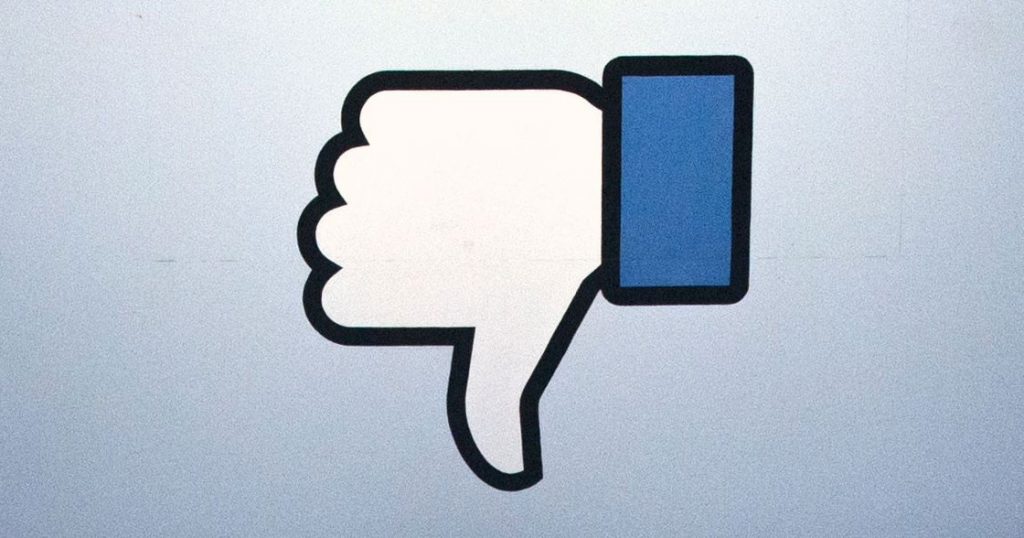
There’s a ‘blame the messenger’ quality to global efforts to counter misinformation, extremism and hate speech by world leaders and technology companies.
The efforts are informed by a historically proven false assumption that suppressing expressions of racism, bigotry, supremacism and intolerance or psychological warfare campaigns by the likes of Russia will ensure that they do not reach the public.
Perhaps, most fundamentally, the measures tackle the purveyors of misinformation, racism and supremacism, but fail to address the core of the problem: the mainstreaming of racist and supremacist thought by civilizationalist world leaders, far-right politicians and activists, and left-wing political parties.
The ‘blame the messenger’ approach was front and centre this week in a decision by Facebook and its subsidiary, Instagram, to ban people and media such as conspiracy theorist Alex Jones and his Infowars platform; Milo Yiannopoulos, a British polemicist, political commentator and one-time associate of former far-right Trump strategic advisor Stephen K. Bannon; and Nation of Islam leader Louis Farrakhan, notorious for his anti-Semitic comments.
Facebook announced the bans two weeks before digital ministers of the Group of Seven (G-7) were scheduled to meet in Paris with representatives of technology companies to discuss blocking extremist content.
The meeting, involving ministers from Canada, France, Germany, Italy, Japan, the United Kingdom, and the United States, is expected to coincide with talks between French president Emmanuel Macron and New Zealand prime minister Jacinda Ardern on how to curb the spread of militant ideology on social media.
Ms. Ardern’s inclusive response to the gunning down of 51 Muslims in Christchurch in March by a white supremacist as they were praying at two mosques has become, alongside Norway’s response in 2011 to the killing of 77 people by another white supremacist, a model of how to counter racism and supremacy without succumbing to civilisationalism or reducing the problem exclusively to one of security, law enforcement and censorship.
To be sure, Ms. Ardern’s response as it regards social media was shaped by the fact that the Christchurch killer broadcasted his crime live on the internet.
The Facebook ban and the Paris meetings are also in response to last month’s jihadist attacks on churches and luxury hotels in Sri Lanka that left some 260 people dead.
Reducing the fight against racism, supremacism and psychological warfare to restrictions of free speech fails to recognize that the core of the problem is the fact that diverse civilizationalist leaders have created an environment in which often religiously packaged expressions of racial, ethnic or religious superiority no longer are socially taboo and have become part of the mainstream discourse in democratic as well as non-democratic societies.
It also ignores the fact that some of the worst atrocities in recent history, including the Holocaust, the genocide in Rwanda and the mass murder of some 8,000 men in Srebrenica preceded the rise of social media.
Compounding the problem is that non-civilizationalist politicians and intellectuals who subscribe to Islamophobic or anti-Semitic historical and societal analysis in effect reinforce the environment shaped by civilisationalists.
Take, for example, British Labour Party leader Jeremy Corbyn, who for years has been unable to shake off suspicions that he harbours anti-Semitic sentiments. His denials have so far been underwhelming and unconvincing.
In the latest instance, a member of Mr. Corbyn’s shadow cabinet defended his penning in 2011, four years before he became leader of the party, of a foreword to a republication of an anti-Semitic tract first published in 1902 as “looking at the political thought within the whole text itself, not the comments that were anti-Semitic.”
Mr. Corbyn himself described the book’s racist attitude towards minorities as “absolutely deplorable” but insisted that his contribution analysed the ideas about “the process which led to the first world war” – the subject of the book – and not the language used by the author. In other words, association with a publication that expressed racist attitudes was as such not a problem.
John Atkinson Hobson, the author, based his book, ‘Imperialism, A Study,’ on his reporting from South Africa for the Manchester Guardian, The Guardian’s predecessor, on the clashes between Britain and the Boers. Mr Hobson asserted that the war was being fought in support of German Jewish financiers with interests in South African mining.
Mr. Hobson’s writing influenced left-wing thought at the dawn of the 20th century as well as Russian communist leader Vladimir Lenin as he was writing one of his seminal works, Imperialism, the Highest Stage of Capitalism.
Mr. Corbyn’s defense of his foreword rings hollow against his analysis in the foreword that “what is brilliant (about the book), and very controversial at the time, is his [Hobson’s] analysis of the pressures that were hard at work in pushing for a vast national effort, in grabbing new outposts of Empire on distant islands and shores.” Those pressures were, according to Mr. Hobson, Jewish financiers.
Mr. Corbyn noted further that “Hobson’s railing against the commercial interests that fuel the role of the popular press with tales of imperial might, that then lead on to racist caricatures of African and Asian peoples, was both correct and prescient.”
He was referring to Mr. Hobson’s description of Jewish financiers as “these great businesses — banking, booking, bill discounting, loan floating, company promoting — (that) form the central ganglion of international capitalism… United by the strongest bonds of organisation, always in closest and quickest touch with one as other, situated in the very heart of the business capital of every state, controlled, so far as Europe is concerned, by men of a single and peculiar race, who have behind them many centuries of financial experience, they are in a unique position to control the policy of nations.”
Mr. Hobson went on to rhetorically ask: ““Does anyone seriously suppose that a great war could be undertaken by any European state, or a great state loan subscribed, if the house of Rothschild and its connections set their face against it?”
He answers the question by concluding that “there is not a war, a revolution, an anarchist assassination, or any other public shock, which is not gainful to these men; they are harpies who suck their gains from every new forced expenditure and every sudden disturbance of public credit… The direct influence exercised by great financial houses in ‘high politics’ is supported by the control which they exercise over the body of public opinion through the press.”
The attitudes of both Mr. Corbyn and civilisationalists suggest that simply policing social media targets only the most extreme expressions of civilizationalist racism and supremacism as well as non-civilizationalist bigotry and prejudice and at best drives them either underground or to alternative platforms.
It ignores the fact that civilisationalists, including world leaders ranging from US president Donald J. Trump to Hungarian prime minister Victor Orban and others across the globe as well as the likes of former Trump advisor Bannon and European politicians and activists such as Marie Le Pen and Geert Wilders or the Alternative for Germany party are creating a world in which racism and supremacism threatens to shape inter-communal as well as international relations.
It’s a world that would render the band-aid social media solutions by technology companies and world leaders ineffective at best and irrelevant at worst.
Dr. James M. Dorsey is a senior fellow at Nanyang Technological University’s S. Rajaratnam School of International Studies, an adjunct senior research fellow at the National University of Singapore’s Middle East Institute and co-director of the University of Wuerzburg’s Institute of Fan Culture.
A podcast version of this story is available on Soundcloud, Itunes, Spotify, Stitcher, TuneIn, Spreaker, Pocket Casts and Tumblr













































